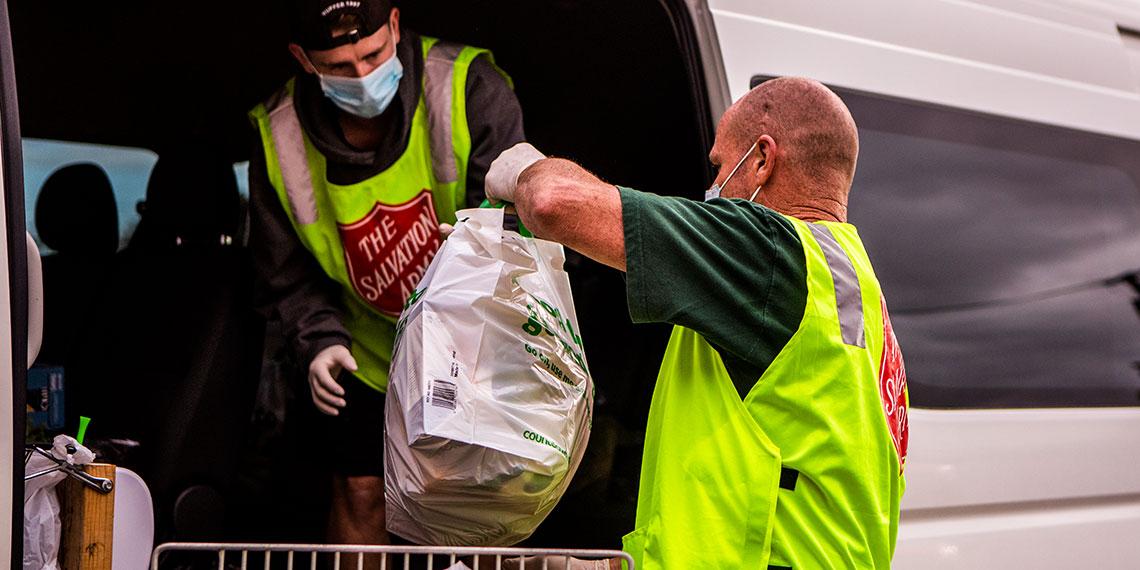You are here
The Salvation Army services to swing back into action under Level 2

The Salvation Army will be resuming most of its pre-lockdown welfare services, as Level 2 comes into force on Thursday.
Under prior lockdown levels, council civil defence teams worked with our staff and volunteers throughout the country to coordinate the Army’s food response to the growing number of those in need. As the State of Emergency lifts, this work will revert to MSD, who in turn works with The Salvation Army. As throughout the Covid-19 pandemic, people should contact MSD in the first instance.
The Salvation Army is mindful of the need to ensure the safety of clients and staff alike, says Assistant Territorial Secretary for Mission, Captain Gerry Walker.
“We are hoping to get as many of our community ministry centres and Family Stores up and running, but this will be dependent on being able to ensure we can continue to meet the restrictions at Level 2.
“Many of our staff and volunteers, particularly in our Family Stores, are aged over 70, and we need to make sure we can operate at a safe staffing level while not putting people at risk.”
Salvation Army Family Stores have been closed during level 3 and 4 lockdown. As from Thursday, many of these will now be open, but not all.
“We need to have safe, non-contact means of people dropping off donations,” Salvation Army National Family Stores manager Gareth Marshall says.
“We are working through the implications of level 2, but we are pleased that we will be able to get the majority of our stores up and running again.”
Those stores that are able to will also accept donations from next Monday, May 18. The Public is advised to check if their local store is open before dropping goods off.
In the meantime, the Army is looking forward to being able to connect with people face to face, an important part of our work with vulnerable New Zealanders.
The Salvation Army’s Addiction, Social Housing and Reintegration Services (ASARS) have continued to operate under all levels of lockdown, in a modified way.
ASARS Director, Lieutenant Colonel Lynette Hutson says distancing rules around level 4 brought some interesting innovations, which worked particularly well for Oasis clients – those addicted to gambling. This is often a hidden affliction, and Lt-Col Hutson says clients found this a much less intimidating way of getting help with their addiction.
However, lockdown showed that many people desperately need face to face human interaction.
“We are aware that doing things from a remote perspective has a lot of merit, but there is a point where people want that human contact,” she says.
For enquiries contact: The Salvation Army Territorial Media Officer, 021 945 337, email: media@salvationarmy.org.nz